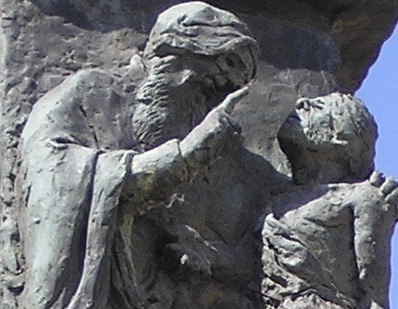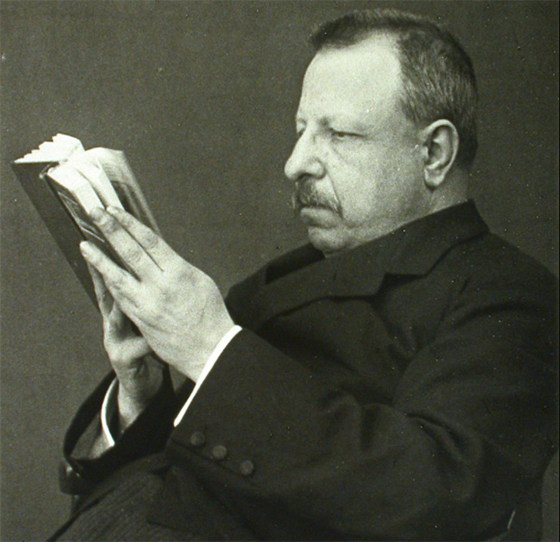On May 2, 1989, Hungary began dismantling its border fence with Austria, allowing a number of East Germans to defect.
Run for the Border


On May 2, 1989, Hungary began dismantling its border fence with Austria, allowing a number of East Germans to defect.

New York City Mayor Bill de Blasio seemed proud of his new initiative. To fight coronavirus, he thinks — and he is joined by a whole lot of other people — that everyone should stay at home indoors. And wear masks, gloves, etc., when going out for essentials only.
But since not everyone will cooperate, what to do? Apply social pressure, such as eye-rolls and a few tsk-tsks?
Well, not this Big Apple mayor.
Better get the police power involved!
De Blasio’s notion has been called a “snitch hotline.” In the spirit of “see-something/say-something,” he asked New Yorkers to snap photos of the scofflaws:
Text the photo to 311 – 692
and action will ensue.
And boy, did he get responses!
Immediately.
The U.K.’s Daily Mail explains that “the service was inundated with prank calls, pictures of genitalia and memes likening de Blasio to Adolf Hitler.”
My favorite “meme” sports a photo of the Führer captioned “TO THOSE TURNING IN THEIR NEIGHBORS AND LOCAL BUSINESSES / YOU DID THE REICH THING.”
And while Stalin analogies might be more apt for the quasi-commie mayor, Hitler references sting more.
John Nolte at Breitbart, referencing George Orwell’s 1984, called the responses “glorious” and “freakin’ awesome.”
The city closed down the hotline for a while to set up a filtering service before sending out leads to the police departments.
In New York City, as in most places in America, if you attempt to establish a Big Brotherish snitch-line, you will get a free-wheeling re-action.
Is this a great country or what?
This is Common Sense. I’m Paul Jacob.

—
See all recent commentary
(simplified and organized)

That which is hateful to you, do not do to your neighbor. That is the whole Torah; the rest is the explanation. Go and study it.
Hillel the Elder (c. 110 BC – 10 AD), Babylonian Talmud, tractate Shabbat 31a

The Manifesto of the Anti-Fascist Intellectuals, written by philosopher Benedetto Croce [pictured, above] in response to the Manifesto of the Fascist Intellectuals by Giovanni Gentile, sanctioned the unreconcilable split between the philosopher and the Fascist government of Benito Mussolini, to which he had previously given a vote of confidence on October 31, 1922.
The manifesto was published by Il Mondo on May 1, 1925, which was Workers’ Day, symbolically responding to the publication of the Fascist manifesto on the Natale di Roma, the founding of Rome (celebrated on April 21). The Fascist press claimed that the Crocian manifesto was “more authoritarian” than its Fascist counterpart — a typical leftist dismissal of what used to be called “liberalism” — in Italian, liberismo — but which Croce dubbed liberism, to distinguish it from the dirigiste quasi-socialisms of self-described “liberals” of the time.

“I think it’s a shame,” HBO comedian Bill Maher told Dr. David Katz, “that people like you who sound reasonable — maybe it’s not the exact one true opinion you hear somewhere else — has to go on Fox News to say it.”
For years, I have told liberal friends that they miss important stories by not paying attention to Fox, because most other TV media eschew non-progressive perspectives they oppose (but perhaps fear we might support).
Last month, Katz wrote a New York Times op-ed, entitled, “Is Our Fight Against Coronavirus Worse Than the Disease?” Rather than the current lockdown strategy, the physician advocates “a middle path” where “high-risk people are protected from exposure” and “low-risk people go out in the world.”
Once upon a time, social media promised regular folks a chance to communicate and even organize without government interference or media filters.
Not so much these days.
Last week, I decried Facebook removing posts informing people about planned anti-lockdown protests, reportedly “on the instruction of governments” in California, New Jersey, and Nebraska because those protests might violate “stay-at-home orders.”
This week, YouTube removed a video that you and I must not see, with California Drs. Dan Erickson and Artin Massihi explaining why they think the lockdowns are bad policy.*
“Anything that would go against World Health Organization recommendations,” clarified YouTube CEO Susan Wojcicki, “would be a violation of our policy” — and will be blocked.
Our society’s first principle is freedom of expression.
The idea? Unfettered information will best lead us to the truth.
Increasingly, our social media and news outfits no longer trust us with information not heavily controlled by them.
Which means we cannot trust them.
This is Common Sense. I’m Paul Jacob.
* The doctors also confirm, as I suggested might happen, that medical personnel are being pressured to “add COVID” to death reports.

—
See all recent commentary
(simplified and organized)

Philosophy is a battle against the bewitchment of our intelligence by means of our language.